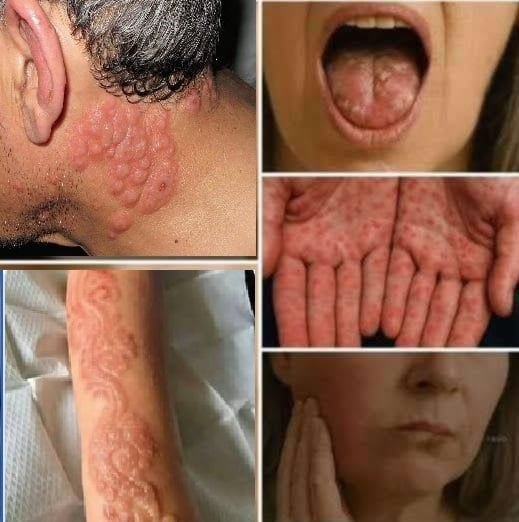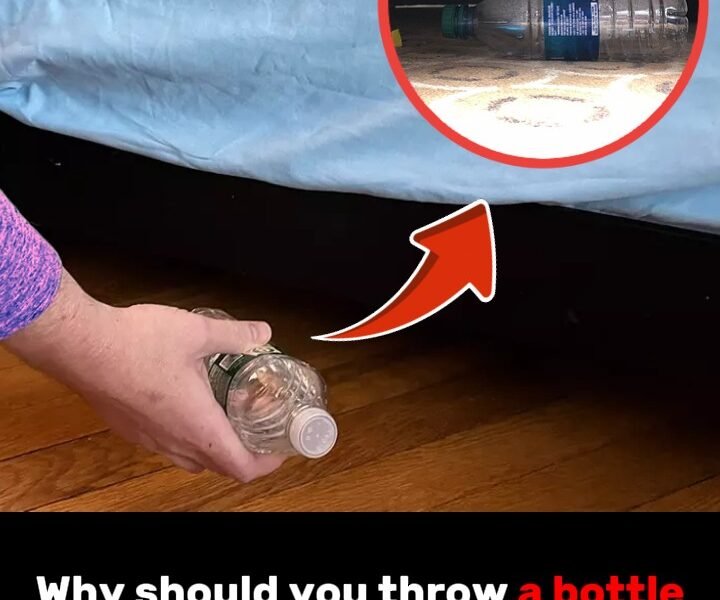Visible changes on the skin or inside the mouth often act as early warning signs for deeper health concerns. While a rash or red spot might seem minor at first, these symptoms could be signals of infections, allergic reactions, or immune system disorders.
From itchy red patches to fluid-filled blisters or red spots on the tongue, understanding the potential causes behind these symptoms is crucial for early intervention and proper treatment. In this article, we explore several common medical conditions associated with visible skin and oral manifestations—and how to recognize when it’s time to seek medical attention.
Herpes Zoster (Shingles)
Eight Skin Symptoms You Should Never Ignore | Jefferson Health
One of the most recognizable signs is a cluster of fluid-filled blisters that appear on one side of the body, often near the neck, torso, or face. This condition is known as Herpes Zoster, or shingles, and it’s caused by the reactivation of the varicella-zoster virus—the same virus responsible for chickenpox.
Key Symptoms
Painful, red, fluid-filled blisters forming a band-like pattern
Sensitivity, tingling, or burning pain before rash appears
Typically confined to one side of the body or face
Who’s at Risk?
Adults over age 50
Individuals with weakened immune systems
Those who previously had chickenpox
While shingles is not life-threatening, the pain can be intense. Early antiviral medications can help shorten the duration of the illness and reduce the risk of complications such as nerve pain (postherpetic neuralgia).
Hand, Foot, and Mouth Disease (HFMD)
A Surge in Hand, Foot, and Mouth Disease: What Every Parent Should Know
Red spots on the tongue, mouth, palms, or soles may suggest Hand, Foot, and Mouth Disease (HFMD). Though most common in children, adults can also contract this contagious viral illness.
Common Symptoms
Small red lesions or ulcers inside the mouth and on the tongue
Rash or red spots on the hands, feet, and sometimes buttocks
Low-grade fever, sore throat, and general fatigue
HFMD typically resolves within 7–10 days without complications, but symptoms like dehydration can occur, especially in young children who struggle to drink due to mouth pain.
Management Tips
Encourage hydration with cold drinks or popsicles
Isolate during the infectious stage (first week)
Practice frequent handwashing to limit spread
Tinea Corporis (Ringworm)
Ringworm (Tinea Corporis): What It Looks Like, Causes & Treatment
A circular, ring-like red rash with raised edges and a clear center is a classic presentation of Tinea Corporis, also known as ringworm—a fungal infection that thrives on skin surfaces.
Signs to Look For
Itchy, scaly patches that spread outward in a ring shape
Defined red border with central clearing
Commonly appears on arms, chest, legs, or back
This fungal infection is transmitted through direct contact with infected individuals, pets, or contaminated surfaces like gym mats or towels.
Treatment Options
Over-the-counter topical antifungal creams (e.g., clotrimazole, terbinafine)
Prescription oral antifungals for severe or widespread cases
Avoid sharing personal items like razors or towels
Contact Dermatitis or Allergic Reaction
Contact Dermatitis – North Texas Allergy & Asthma Center
Red, irritated skin that appears suddenly and is itchy or swollen could be Contact Dermatitis. This reaction occurs when skin comes into contact with allergens or irritants such as soaps, detergents, plants, or chemicals.
Typical Symptoms
Redness, itching, and inflammation
Swollen skin or blisters
Clear borders outlining the contact area
The rash can occur on any body part but is commonly found on hands, neck, or forearms—areas frequently exposed to external substances.
How to Manage It
Remove or avoid the irritant or allergen
Apply hydrocortisone creams to reduce inflammation
Use soothing lotions like calamine to ease itching
In most cases, the rash resolves within a week or two, but recurring exposures may lead to chronic skin sensitivity.
Erythema Multiforme
Erythema Multiforme: Treatment, Symptoms, and Causes
If the red patches resemble concentric rings or “target” lesions—especially on the hands, arms, or mouth—it may be Erythema Multiforme, a hypersensitivity reaction often triggered by infections or medications.
Characteristics
Round, red lesions with dark centers (target-shaped)
Typically symmetrical and located on extremities
May involve the lips and inside of the mouth
Sometimes associated with fever or fatigue
Mild forms of Erythema Multiforme resolve on their own, but more serious cases involving mucous membranes may require prescription corticosteroids or hospitalization.
Common Triggers
Herpes Simplex Virus (HSV) outbreaks
Certain antibiotics or anti-inflammatory drugs
Infections like pneumonia or hepatitis


